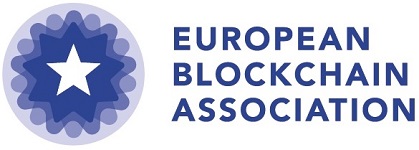- Telecommunications Giant Vodafone Leaves the Libra Association
- Group of Central Banks Assesses Developing Central Bank Digital Currencies
- South Korea Might Impose 20 Percent Tax on Cryptocurrency Profits
- Report: Terrorists Increasingly Use Crypto to Raise Funds Anonymously
- Canadian Securities Administrators Subject Crypto Exchanges to Securities Laws
Blockchain Association to Launch in Europe; Santander and BBVA Among First to Join
 Santander Bank, the Spanish multinational commercial bank, and BBVA, the multinational Spanish banking group, are among the first banks to be invited to a blockchain forum organized by the European Commission in Brussels. The European Commission in Brussels is launching the International Association of Applications of Blockchain (IATBA), to promote blockchain.
Santander Bank, the Spanish multinational commercial bank, and BBVA, the multinational Spanish banking group, are among the first banks to be invited to a blockchain forum organized by the European Commission in Brussels. The European Commission in Brussels is launching the International Association of Applications of Blockchain (IATBA), to promote blockchain.
The IATBA is expected to be established in the first quarter of 2019, and so far 5 banks will be a part of the association, although more are expected to be invited. Europe is making consistent moves towards supporting blockchain; in April 2018 the European Blockchain Alliance was formed, with 27 European countries joining. The aim of the alliance is “to develop a reliable, secure and resilient European blockchain infrastructure.”
This news highlights a positive trend towards blockchain in Europe. Because of EU legislation, European countries are best served by working together in forming blockchain initiatives. Different countries in the EU may have different experience levels with blockchain and have experienced different levels of participation from their citizens. By all coming together, they can share ideas about what is working in their countries, the attitude towards blockchain in their countries and form a plan for the future.
Countries around the world are scrambling to find ways to regulate cryptocurrency without suppressing it. The EU has historically had tight regulation laws, so it makes sense for countries in the block to collaborate, otherwise, they may find themselves outside of the law and playing catch up once regulations come in. You can drive more change from the inside than from the outside, which is why Santander and BBVA are probably excited to be a part of the early discussions.
It is also increasingly looking like blockchain is an area Europe may want to invest in, in terms of technological application and advancement. Getting these discussions going to Brussels, will likely lead to the pro blockchain sentiment filtering down through the individual governments. This will likely lead to universities funding research into blockchain applications, in order to get ahead in this exciting new area. The has been rumors that scientific and technological research has been declining in Europe in recent years, and with Brexit, the EU is set to lose some of its best Universities (Oxford, Cambridge, LSE, UCL). With this in mind, it would be a good idea for Europe to showcase its world leaders in tech and invest in research in the blockchain.
Digital favorites
- Siti Di Scommesse
- Casino Bonus Senza Deposito Immediato
- Best Casinos Not On Gamstop
- Casinos Not On Gamstop
- UK Casinos Not On Gamstop
- Non Gamstop Casinos
- UK Casinos Not On Gamstop
- Casino Not On Gamstop
- Non Gamstop Casino
- Slots Not On Gamstop
- Meilleur Casino En Ligne France
- Gambling Sites Not On Gamstop
- オンライン カジノ おすすめ
- Gambling Sites Not On Gamstop
- Non Gamstop UK Casinos
- UK Casino Sites Not On Gamstop
- UK Casinos Not On Gamstop
- Non Gamstop Casinos UK
- Non Gamstop Casino Sites UK
- Best Slot Sites
- UK Online Casinos Not On Gamstop
- Best Non Gamstop Casino
- Best Sports Betting Sites Not On Gamstop
- Meilleur Casino En Ligne
- Migliori Casino Online
- Meilleur Site De Casino En Ligne
- Pari Sportif Belgique
- Siti Casino
- Meilleur Site De Paris Sportif International
- 익명 카지노
- Fm 카지노
- Casino Sans Verification
- Real Money Casino App No Deposit
- Siti Non Aams Bonus Senza Deposito
- Casino Non Aams
- Meilleur Casino En Ligne Belgique
- Site De Poker
- Casino En Ligne 2026
- Meilleur Casino En Ligne 2026
- Casino Online Non AAMS





